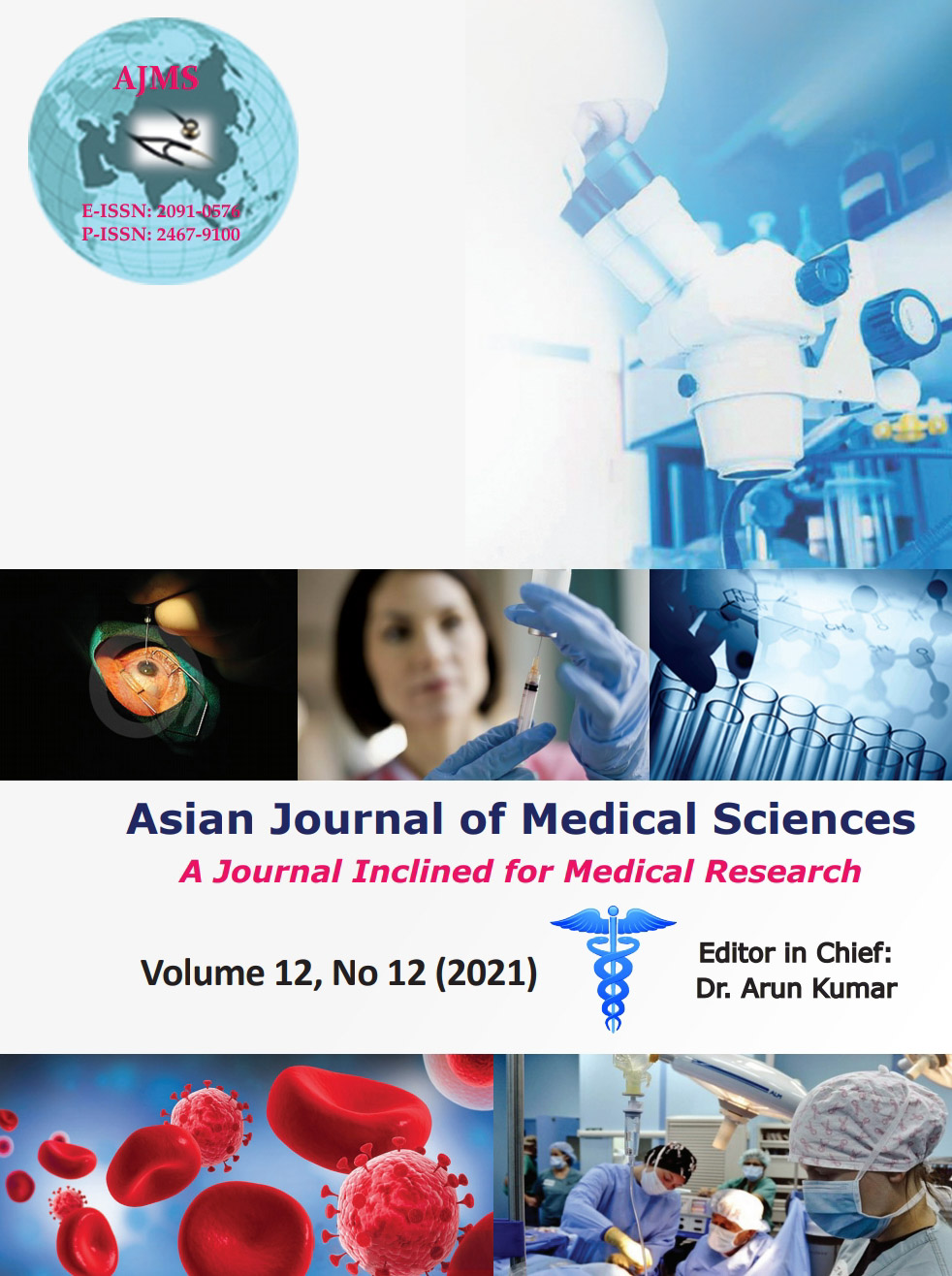Ferritin – The key model inflammatory marker in diabetic and non-diabetic COVID-19
Keywords:
Type 2 diabetes mellitus, HbA1C, Serum ferritin, Severe acute respiratory syndrome coronavirus-2Abstract
Background: Diabetics exhibit elevated serum ferritin level when compared to non-diabetic counterpart, indicates impact of its association with coronavirus disease 2019 (COVID-19) infection and disease progression. Ferritin is a key mediator of immune dysregulation through direct immunosuppression contributing to cytokine storm resulting in fatal outcome in COVID-19.
Aims and Objectives: This study aims to estimate serum ferritin in diabetic (cases) and non-diabetic (controls) COVID-19 patients and its correlation with their diabetic profile (FBS, PPBS, RBS, and HbA1C).
Materials and Methods: A retrospective case–control study conducted at Rajarajeswari Medical College and Hospital, Bengaluru, for a period of 8 months among diabetic and non-diabetic COVID-19 patients.
Results: The study population consisted of 957 individuals, out of them, 425 patients were type 2 diabetes mellitus and 532 were non-diabetic COVID-19-positive patients (controls). Diabetic profile parameters (FBS, PPBS, RBS, and HbA1c) and serum ferritin were significantly (P<0.05) high in cases as compared to controls. Among diabetic COVID-19, the glycated hemoglobin and serum ferritin showed a significantly positive correlation (r=0.55) with serum ferritin (mean=648.98±320.48).
Conclusion: Hyperferritinemia is more prevalent in diabetic COVID-19 individuals. Serum ferritin can be considered as a valuable biomarker to screen the diabetic and non-diabetic for the presence of hyperinflammation and to predict severity of COVID-19 infection so that it will help the clinician for proper management.
Downloads
Downloads
Published
How to Cite
Issue
Section
License
Copyright (c) 2021 Asian Journal of Medical Sciences

This work is licensed under a Creative Commons Attribution-NonCommercial 4.0 International License.
Authors who publish with this journal agree to the following terms:
- The journal holds copyright and publishes the work under a Creative Commons CC-BY-NC license that permits use, distribution and reprduction in any medium, provided the original work is properly cited and is not used for commercial purposes. The journal should be recognised as the original publisher of this work.
- Authors are able to enter into separate, additional contractual arrangements for the non-exclusive distribution of the journal's published version of the work (e.g., post it to an institutional repository or publish it in a book), with an acknowledgement of its initial publication in this journal.
- Authors are permitted and encouraged to post their work online (e.g., in institutional repositories or on their website) prior to and during the submission process, as it can lead to productive exchanges, as well as earlier and greater citation of published work (See The Effect of Open Access).




